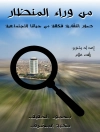’Maria P. P. Root′s new edited volume on Filipino American makes an outstanding contribution in terms of exploring the socio-economic integration and the transformation of ethnic identities among one of the largest, fastest growing, but least studied Asian American groups in the United States – Filipinos. . . . One unique area covered by this book is its thoughtful reflection on the impacts of colonization on Filipino literature and the articulation of Filipino identities . . . . The book provides an unusual breadth of information on Filipino lives in the U.S.A. . . . I found this book very valuable as an introductory text in an undergraduate curriculum on Asian American studies, and in racial and ethnic studies. The power of the book lies in its ability to render problematic the stereotypes of Asian Americans, and to question the preconceived categories of race, culture, and ethnicity. The book′s discussion and reflection on identities is provocative and accessible to students.’
–Journal of Ethnic and Migration Studies
’Maria P. P. Root succeeds where many ethnic-specific anthologies fail: focusing on the issue of a people′s identity while avoiding boxing them in. . . . What is refreshing about this volume is not only the variety of perspectives, but the different styles. . . . Root and the contributors succeed in living up to the hope stated in the book′s introduction, ′′that these pages will offer challenging questions, some refreshing analysis, and new paradigms for interpreting the Filipino American experience.′′
–Pacific Reader
Typically, when Asian Americans are discussed in the media, the reference is to people of Chinese or Japanese descent. However, the largest Asian American ethnic group is Filipino-a group about which little is known or written, even though Filipinos have a long-standing history with the United States through colonization that effects how this group is viewed and views themselves. Aimed at rectifying this information dearth, this volume presents the first interdisciplinary analysis of who Filipinos are and what it means to be a Filipino American. With contributions from historians, social workers, community leaders, ethnic studies scholars, sociologists, educators, health care workers, political scientists, and psychologists, this book addresses such issues as ethnic identity, the impact of different colonizations on ethnic identity, personal and family relationships, mental health, race, and racism. In addition, the sociopolitical context is examined in each social-issues chapter to make the volume more useful as a foundational tool for hypothesis generation, empirical research, policy analysis and planning, and literature review. This book offers readers a rich and varied portrait of our largest Asian American ethnic group.
Spis treści
Foreword – Fred Cordova
Introduction – Maria P P Root
The Tragic Sense of Filipino History – Peter Bacho
Demographic Changes Transforming the Filipino American Community – Juanita Tamayo Lott
Macro/Micro Dimensions of Filipino Immigration to the United States – Antonio J A Pido
Colonialism′s Legacy – Nilda Rimonte
The Inferiorizing of the Filipino
Coming Full Circle – Leny Mendoza Strobel
Narratives of Decolonization among Post-1965 Filipino Americans
Contemporary Mixed-Heritage Filipino Americans – Maria P P Root
Fighting Colonized Identities
Filipino American Identity – Linda A Revilla
Transcending the Crisis
Living in the Shadows – Concepcion A Montoya
The Undocumented Immigrant Experience of Filipinos
Mail-Order Brides – Raquel Z Ordoñez
An Emerging Community
Part of the Community – Cynthia C Mejia-Giudici
A Profile of Deaf Filipino Americans in Seattle
The Day the Dancers Stayed – Theodore S Gonzalves
On Filipino Cultural Nights
Pamantasan – Jon Y Okamura and Amefil R Agbayani
Filipino American Higher Education
Images, Roles and Expectations of Filipino Americans by Filipino Americans – Allan L Bergano and Barbara L Bergano-Kinney
Homeland Memories and Media – Rick Bonus
Filipino Images and Imaginations in America
Deflowering the Sampaguita – M Evelina Galang
Tomboy, Dyke, Lezzie and Bi – Trinity A Ordona et al
Filipina Lesbian and Bisexual Women Speak Out
At the Frontiers of Narrative – Martin F Manalansan IV
The Mapping of Filipino Gay Men′s Lives in the United States
Throwing the Baby Out with the Bathwater – Antonio T Tiongson, Jr
Situating Young Filipino Mothers and Fathers Beyond the Dominant Discourse on Adolescent Pregnancy
The Prevalence and Impact of Alcohol, Tobacco and Other Drugs on Filipino American Communities – Jacqueline T Jamero Berganio, Leonardo A Tacata Jr and Peter M Jamero
The Family Tree – Emilie Gaborne Dearing
Dicovering Oneself
The Filipino American Young Turks of Seattle – Peter M Jamero
A Unique Experience in the American Sociopolitical Mainstream
Filipino Americans and Ecology – Felix I Rodriguez
New Challenges in the Global Future
Filipino Spirituality – Thelma B Burgonio-Watson
An Immigrant′s Perspective
O autorze
Maria P. P. Root, Ph.D., born in Manila, Philippines, grew up in Los Angeles, California. She graduated from the University of California at Riverside in 1977 with degrees in Psychology and Sociology. She subsequently attended Claremont University in Claremont, California receiving her Master’s degree in Cognitive Psychology in 1979. She completed her Ph.D. in Clinical Psychology at the University of Washington in Seattle in 1983 with an emphasis in minority mental health.
Dr. Root resides in Seattle, Washington where she is an independent scholar and clinical psychologist. She has been in practice for over 20 years. Her general practice focuses on adult and adolescent treatment therapy, which includes working with families and couples. Dr. Root’s working areas of knowledge are broad with emphasis on culturally competent practice, life transition issues, trauma, ethnic and racial identity, workplace stress and harassment, and disordered eating. In the early 1980s, she established a group treatment program for bulimia that grew out of her dissertation work. Subsequently, she trained other professionals to recognize and treat people with a range of disordered eating symptoms. She continues to treat people with eating disorders.
Dr. Root’s practice also includes formal psychological evaluation. She works as a consultant to several law enforcement departments. She also works as an expert witness in forensic settings performing evaluations and offering expert testimony in matters that require cultural competence and/or knowledge of racism or ethnocentrism.
Dr. Root is a trainer, educator, and public speaker on the topics of multiracial families, multiracial identity, cultural competence, trauma, work place harassment, and disordered eating. She has provided lectures and training in New Zealand, England, the Netherlands, Canada, and the United States for major universities, professional organizations, grassroots community groups, and student organizations.
Dr. Root’s publications cover the areas of trauma, cultural assessment, multiracial identity, feminist therapy, and eating disorders. One of the leading authorities in the field of racial and ethnic identity, Dr. Root published the first contemporary volume on mixed race people, Racially Mixed People in America (1992). Including this book, she has edited two award-winning books on multiracial people and produced the foundational Bill of Rights for Racially Mixed People. The U.S. Census referred to these texts in their deliberations that resulted in an historic ‘check more than one’ format to the race question for the 2000 census.
Dr. Root is past-President of the Washington State Psychological Association and the recipient of national and international awards from professional and community organizations.












